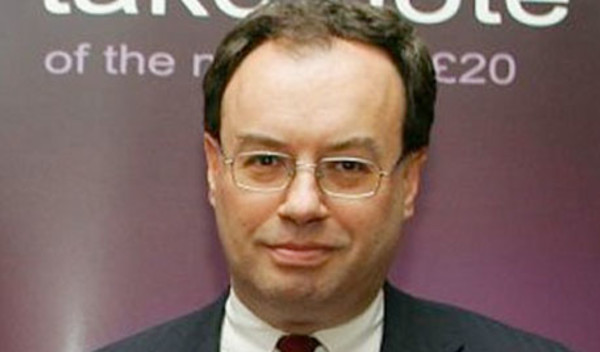

Andrew Bailey’s appointment as FCA chief executive could herald the start of a focus on institutional practices rather than the end-consumer, it has been claimed.
Last week it was announced that Mr Bailey, chief executive of the Prudential Regulation Authority (PRA), was to be the surprise successor to Martin Wheatley at the City watchdog.
While the appointment brought praise from the industry, Mr Bailey’s tenure at the Bank of England – where he has worked for 30 years, latterly in the PRA division – has led to suggestions of a new focus for the FCA.
Mark Spiers, head of banking, investments and lending for regulatory consultancy Bovill, predicted a focus on institutional asset management rather than the retail space.
“Conduct in the institutional market might be [an issue of interest],” he said. “They have been talking about moving up the value chain and making it more transparent. We may get away from the end-consumer, which the FCA has previously been quite focused on.”
Changes to the FCA board announced alongside Mr Bailey’s appointment revealed another move away from the end-consumer: the 13-strong panel would no longer have adviser representation.
Mr Bailey is expected to take up the FCA job in July, but last week gave an early sign that his focus on systemic risk while at the PRA has put the asset management industry in his sights.
In a speech on January 27, the day after his appointment was announced, Mr Bailey said there should be “no lack of clarity” about the nature of assets held in financial vehicles.
He argued this clarity had limited the market fallout from US manager Third Avenue’s decision to suspend redemptions on its $788m (£551m) Focused Credit fund in December 2015. Mr Bailey claimed this was because the portfolio’s purpose – investing in high-yield debt – had been made clear.
He also stressed the need to ensure investors were under “no illusion” regarding the liquidity of a fund’s assets (see panel).
He added: “It is striking that if you were familiar only with a chart of the evolution of global assets under management over the last 20 years, you should be excused for failing to spot that a global financial crisis had occurred.”
Though some asset managers have declined to comment on what Mr Bailey’s appointment would mean for the industry, his arrival has been welcomed by many.
Martin Gilbert, chief executive of Aberdeen Asset Management, said Mr Bailey had the right attributes for the job.
“I have found him to be considerate but tough, which are the kind of qualities you want from a regulator,” he said.
Mr Bailey was also praised by chancellor George Osborne, who said: “He will be tough but fair, and understands the flaws and merits of the [financial] sector better than anyone.”
Bovill’s Mr Spiers described the incoming chief executive as “thoughtful and credible”, but acknowledged that doubts remain over the regulator’s approach following the ousting of Mr Wheatley.
The departure of Mr Wheatley, and the subsequent revelation that the watchdog had scrapped a review of banking culture, has been interpreted in many quarters as a sign of the government’s intention to treat banks more leniently in future.
“[Mr Bailey] was not overly strict with the bankers, so is this an olive branch to the banks and a sop to the industry?” said Mr Spiers.
Bailey warns fund liquidity concerns could force Bank to intervene
The incoming FCA head used a speech last May to suggest that liquidity concerns could ultimately prompt the Bank of England to intervene in the asset management market.
Mr Bailey warned that “fragile underlying market liquidity” may mean “stressed disposals of assets might be harder to accommodate in an orderly fashion”, and suggested a number of possible measures to mitigate this.
He said: “Potential responses... are to require funds to hold larger liquid asset buffers to facilitate orderly redemption payments to investors, to apply more stringent leverage limits where appropriate, and to require that the redemption terms offered to investors take sufficient account of the risk that secondary market liquidity in the assets they hold could become impaired.”
This suggestion was emphasised in Mr Bailey’s separate speech last week, in which he said regulators must “do all we can to ensure... that the liquidity promised by funds to their investors mirrors the market liquidity of the underlying investments”.



